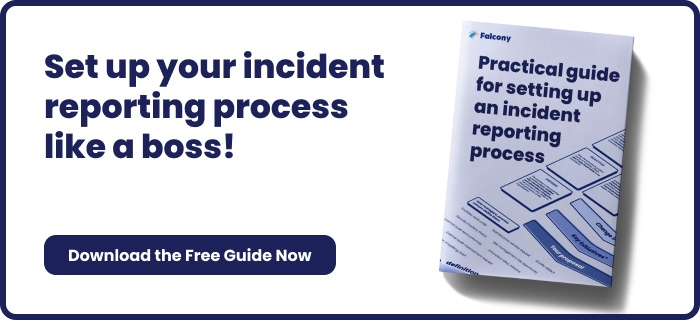Fundamental Attribution error in accident investigations
Accidents happen, whether in the workplace, on the road, or in our daily lives. When investigating these incidents, it's essential to understand the various factors that contributed to the event. However, human psychology can sometimes lead us astray during these investigations. One cognitive bias that often emerges in accident investigations is the Fundamental Attribution Error. In this blog, we'll explore what this error is, how it can impact accident investigations, and strategies to mitigate its effects.
Understanding the Fundamental Attribution Error
The Fundamental Attribution Error is a cognitive bias that involves attributing the behavior of others to their inherent characteristics or personality traits, while attributing our behavior to external factors or situational influences. In other words, when we see someone else make a mistake or get involved in an accident, we tend to blame their character or competence rather than considering the situational factors that may have contributed to the incident.
Impact on Accident Investigations
The Fundamental Attribution Error can have a significant impact on accident investigations in several ways:
-
Blaming Individuals: Investigators may jump to conclusions, assuming that the individuals involved in the accident were solely responsible due to their perceived incompetence or negligence.
-
Neglecting Systemic Factors: This bias can divert attention away from systemic or environmental factors that may have played a crucial role in the accident. Focusing solely on individual behavior overlooks potential improvements to processes, equipment, or training.
-
Missed Learning Opportunities: By attributing accidents solely to personal factors, organizations miss out on valuable opportunities to learn from incidents and implement preventative measures.
Mitigating the Fundamental Attribution Error
To conduct more effective accident investigations and reduce the impact of the Fundamental Attribution Error, organizations can implement the following strategies:
-
Promote a Just Culture: Foster an organizational culture where individuals feel safe reporting incidents without fear of blame or punishment. Emphasize that the goal is to learn and improve, not to assign blame.
-
Use a Systems Approach: Encourage investigators to adopt a systems approach to accident analysis. This involves examining not only individual actions but also the broader context, including equipment, processes, and organizational culture.
-
Human Factors Analysis: Incorporate human factors principles into accident investigations to better understand how individual actions are influenced by factors such as fatigue, workload, and stress.
-
Training and Education: Provide training to investigators on recognizing and mitigating cognitive biases like the Fundamental Attribution Error. Awareness can help them make more objective assessments.
-
Cross-Functional Teams: Form multidisciplinary investigation teams that include individuals with diverse expertise, including subject matter experts in the relevant field and human factors specialists.
-
Continuous Improvement: Use the findings from accident investigations to drive continuous improvement in safety measures, procedures, and training programs.
Conclusion
The Fundamental Attribution Error can hinder the effectiveness of accident investigations by leading to a focus on individual blame rather than addressing systemic issues. Recognizing and mitigating this cognitive bias is essential for organizations committed to improving safety and preventing future incidents. By promoting a just culture, adopting a systems approach, and emphasizing continuous improvement, organizations can conduct more thorough and unbiased accident investigations that contribute to a safer and more resilient workplace.
Are you looking for a tool to monitor nonconformities or any other issues in your organisation? Falcony | Observe ticks all the boxes for issue management, is easy to customise, enables real dialogue and is a lot more.
We are building the world's first operational involvement platform. Our mission is to make the process of finding, sharing, fixing and learning from issues and observations as easy as thinking about them and as rewarding as being remembered for them.
By doing this, we are making work more meaningful for all parties involved.
More information at falcony.io.

Related posts
Common Safety Issues in the Manufacturing and Industrial Sector
The manufacturing and industrial sector plays a crucial role in the global economy, but it also...
9 Common Near Misses in Warehousing and Distribution
Safety can often be second in priorities next to efficiency in warehousing and distribution...
12 Typical Accidents in Farming
Despite rigorous safety measures, the agricultural and farming industry remains prone to...





